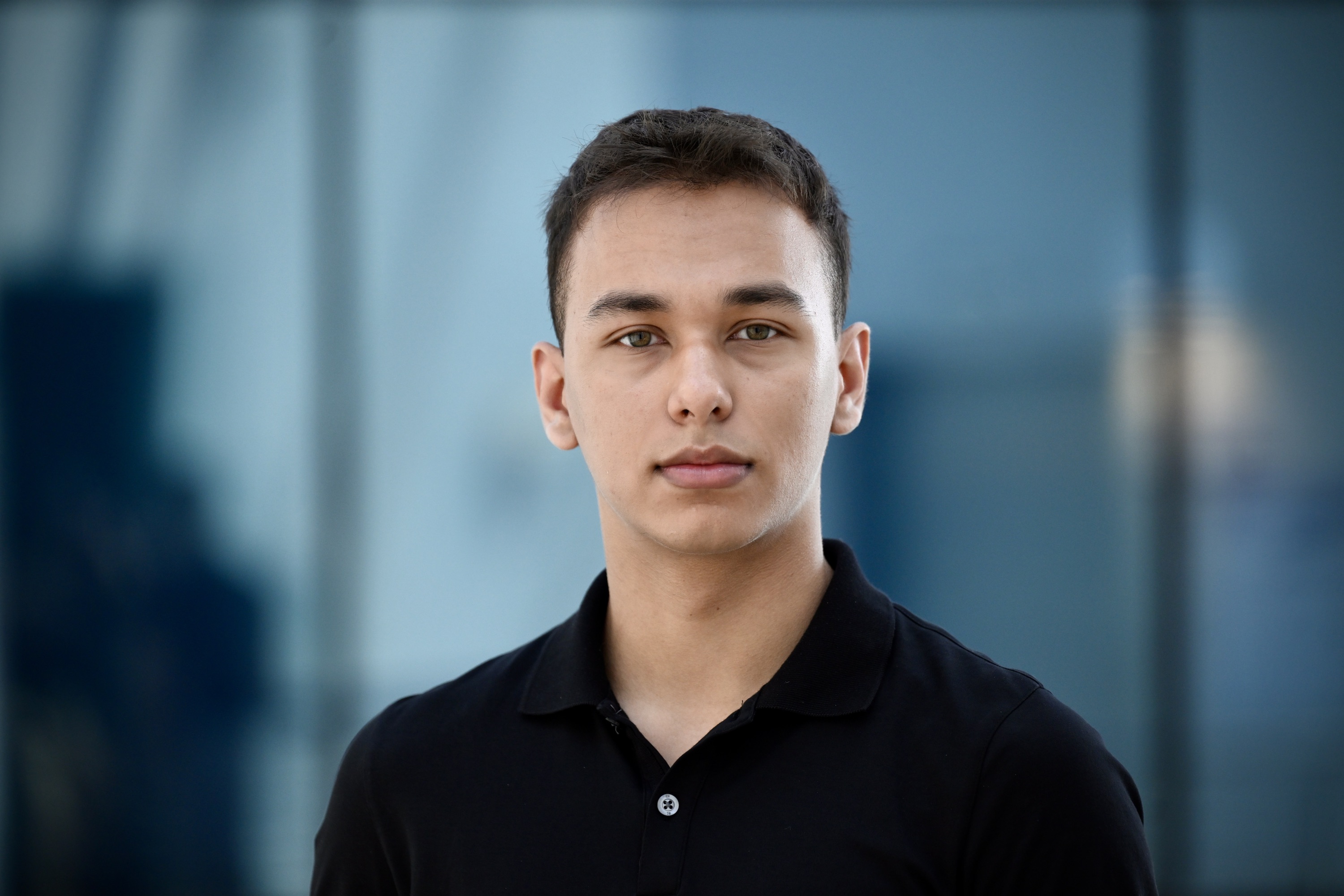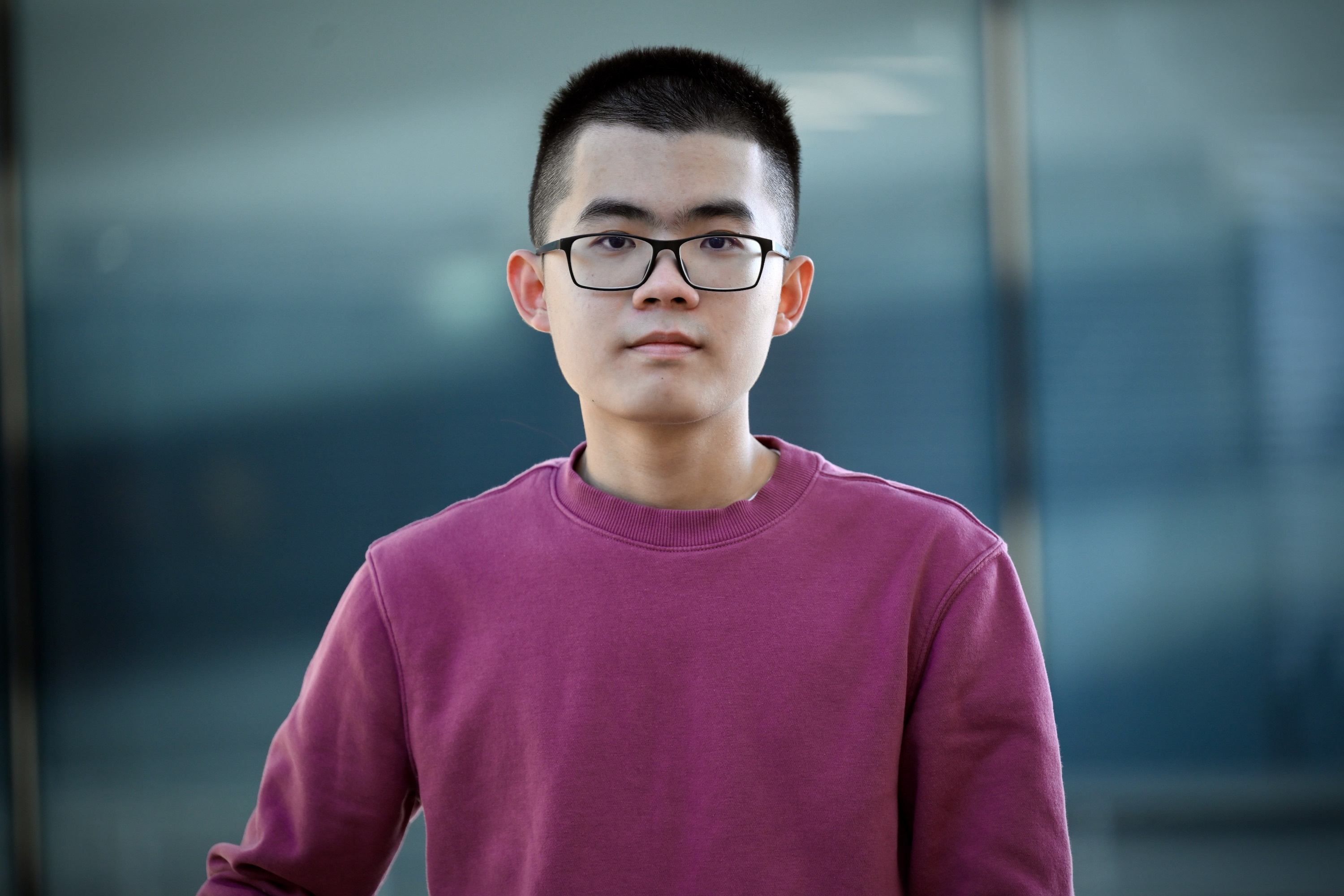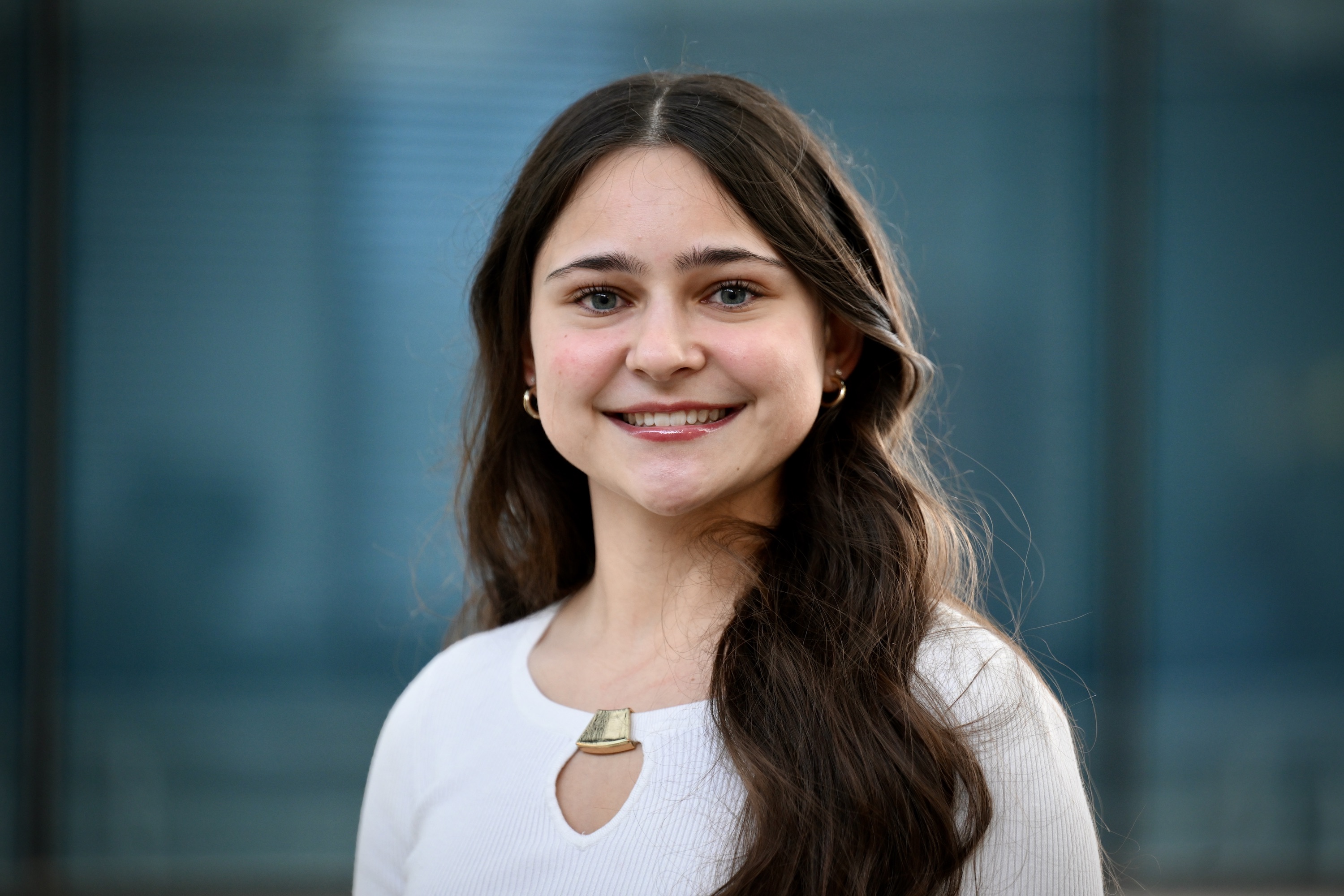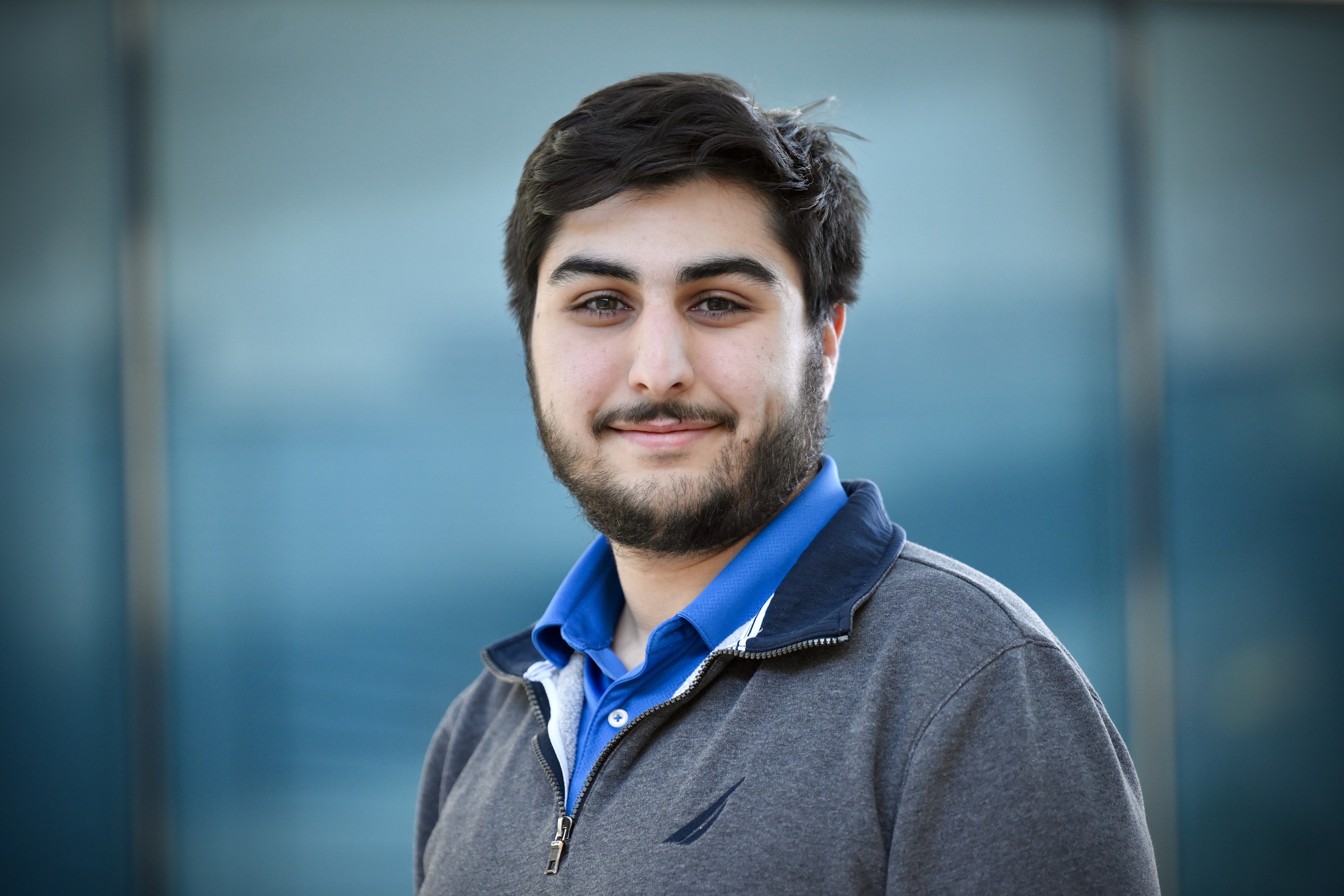Students Spotlight: Claudia Castagna
“NOVA’s Computer Science program has been a great experience. The professors are supportive and always willing to help. The program provides a strong foundation, starting with Python and smoothly transitioning into Java. The combination of video lectures, hands-on application, and in-class practice has been incredibly helpful.”
Computer Science student Claudia Castagna began coding in high school, taking a basic Python class in 11th grade, followed by AP Computer Science and an online NOVA course in 12th grade. While she was introduced to Java in high school, NOVA’s course deepened her understanding of the language. These experiences eased her transition to college and solidified her passion for computer science. Encouraged by her Langley High School teacher in McLean, whom she still keeps in touch with, Claudia pursued her interest further.
Although she enjoyed math and science, Claudia initially gravitated toward writing and the humanities. She even disliked a middle school class that involved Scratch coding. However, as she continued learning, she realized she could combine STEM and the humanities, which motivated her to persevere in computer science.
A highlight of her time at NOVA has been serving as secretary of the Women in STEM Club, which empowers women pursuing STEM careers and provides resources for future success. “Many women and young girls either feel like they can’t do it or are unfamiliar with the field,” Claudia explains. Recently, she and the club’s vice president visited elementary school students to discuss STEM careers, reinforcing the importance of early exposure.
For more information about NOVA’s Women in STEM Club (which welcomes all genders), visit their Discord page.
Claudia also appreciates NOVA’s professors. “Professor Belghith is a great engineering instructor,” she shares. “In his class, we worked on a semester-long project where we built a cable car and learned the fundamentals of engineering design. Dr. Boicu is very nice and flexible—I was able to work on my own projects in class.”
Claudia's Advice for Computer Science Students:
- Take the first step. Whether signing up for a class, talking to a student in the field, or exploring coding on your own, just start.
- Gain experience early. If you’re new to coding, make learning a priority and explore it outside of class.
- Build strong fundamentals. New coding skills build upon previous knowledge, so a solid foundation is essential.
- Use all available resources. Take advantage of office hours, online tutorials, and personal projects.
- Develop key skills. Determination, problem-solving, and persistence are critical. “99% of the time, your first coding attempt won’t work—it might take 100 tries before it does.”
- Think of coding as a language. Understanding its flow and logic makes the technical aspects more engaging.
Claudia plans to graduate from NOVA in two years and transfer to the University of Virginia’s Cognitive Science program with a concentration in Computer Science. This interdisciplinary field blends psychology, neuroscience, linguistics, philosophy, and computer science.
“The UVA program blends STEM and the humanities,” she explains. “I’m also interested in machine learning, which connects cognitive and computer science by exploring how AI models learn and think. AI is becoming more prevalent and is practically everywhere now.”

“I’m sincerely proud of what I’ve accomplished at NOVA and how far I’ve come since high school. I credit much of my success to my introduction to the NOVA community through the Math Club. It helped me build valuable connections, meet new people, and discover many opportunities.” ~ Emiliano Mercado
Emiliano Mercado discovered his passion for computer science in high school after taking AP Computer Science as a junior and Data Structures as a senior. Although he was accepted to several four-year universities, none felt like the right fit. Instead, he chose to pursue an associate degree at NOVA, with plans to reapply to other universities later.
At NOVA, Emiliano found motivation and inspiration from his peers. Surrounded by students participating in internships and clubs, he felt driven to match their ambition. While he had previously connected with like-minded individuals online, seeing classmates take advantage of the same opportunities made it harder to make excuses—it was clear that success was possible.
His introduction to the NOVA community through the Math Club played a pivotal role in shaping his journey. Through the club, he made valuable connections, met new people, and uncovered a wide range of opportunities. One key lesson was that many doors he assumed were closed—such as joining Student Government Association (SGA)—had simply required him to take initiative. Early on, a Student Life staff member even suggested he apply for a position, but he hesitated, believing he lacked the right connections. Later, he realized that most others were in the same position—new and unfamiliar—but still applied and got involved.
Throughout his time at NOVA, Emiliano has had several notable achievements. He was elected as a senator for SGA, received the SEAL Award, participated in the American Mathematical Association of Two-Year Colleges (AMATYC) Student Math League research competition, and has led three student clubs: Math, Computer Science, and Climbing. Despite his accomplishments, the balancing act of academics and extracurricular responsibilities has been challenging and, at times, overwhelming. Still, he remains committed to seeing it through.
Emiliano plans to complete his associate degree in computer science and graduate in spring 2026. He hopes his efforts at NOVA will lead to admission at a university of his choice, and he aims to secure an internship or research opportunity at some point.
For students interested in exploring STEM or climbing, Emiliano encourages them to get involved. The Computer Science Club and Math Club meet weekly and provide opportunities to explore those fields. Interested students can contact him at eam85911@email.vccs.edu. Those interested in the Climbing Club are also welcome to reach out.
For Emiliano, NOVA has been more than just a stepping stone—it’s been a place to grow, connect, and realize what’s possible.
Students Spotlight: Hagop Dayermenjian
“I chose NOVA for its convenience, affordability, and extensive student resources, including online tutoring and professor office hours. For online learners, I recommend synchronous classes because they foster a stronger sense of community and connection.”
Hagop Dayermenjian, a Computer Science student, has always been drawn to STEM. His first experience with programming came in high school, where he learned Python. Although intrigued by computer science, he initially pursued a bachelor’s degree in aerospace engineering at Rutgers University. While there, a MATLAB course reignited his interest in programming. After earning his degree, he enrolled in NOVA’s Computer Science program.
“I’m learning the fundamentals of computer science before taking the next step in my career or starting a master’s program,” he explains. “It’s not required, but I want that strong foundation.”
Hagop works full-time as a software engineer, using Perl, a high-level, general-purpose programming language. “I find computer science gratifying, especially when I get something to work. There’s great validation when an end user has a positive experience with something I’ve built. I really enjoy solving problems—it’s satisfying.”
Balancing a full-time job and two classes, he manages his time well and finds he is most productive studying in social environments, whether on campus or at a café.
“I’ve enjoyed taking classes with Dr. Boicu and Professor Dasgupta. Both genuinely care about their students' success,” he says. “I’ve also met with Professor Dasgupta during office hours to ask about his career in the IET field. We discussed my background and goals, and he provided insights into industry expectations for the future.”
Hagop's Advice for Computer Science Students:
- Work on small projects independently. School teaches the basics, but deeper learning comes from hands-on experience or specialized study.
- Build a strong network. Meaningful connections are essential in any field.
- Develop a genuine interest. Passion drives success.
- Choose a career wisely. Don’t pursue a field just because it’s trendy or popular among friends.
- Learn Python. It’s incredibly valuable, and personal projects reinforce those skills.
- Stay persistent. Hard work pays off—strive for your potential with a positive mindset.
Hagop plans to apply to Georgia Tech’s online Master of Science in Computer Science program and Virginia Tech’s Master of Engineering in Computer Science program at their Innovation Campus in Alexandria. Although Georgia Tech is his top choice, he would be happy with either program.
“There’s a lot of overlap between aerospace engineering and computer science, especially in the defense industry around Washington, D.C.,” he says. “I’ve seen the lifestyles of people working at tech-focused companies like Microsoft and Apple—there’s flexibility and a good work-life balance, which is one of my inspirations for pursuing a career in computer science. Given my experience, there are many opportunities.”

“I love being at NOVA. When I first started here, my English was terrible because I had few opportunities to interact with Americans in Vietnam. My professors have helped me tremendously.”
Computer Science student Phuc Huy Nguyen recently moved to Annandale from Ho Chi Minh City, Vietnam. His journey from Vietnam to Japan and then to the United States took approximately 18 hours.
He began taking classes at NOVA in May 2024. In Vietnam, math is highly emphasized, and Phuc Huy has a natural talent for it. In 11th grade, he took a basic programming class and supplemented his learning with Udemy courses to practice coding.
His biggest challenge has been the language barrier, but living in Annandale, which has a significant Vietnamese population, has made the transition easier. His mother and stepfather work at a Vietnamese restaurant, where their work-life balance is more manageable. While he enjoys the food there, he still misses the flavors of home.
As for his education at NOVA, Phuc Huy says, “I love it because there’s more freedom. Dr. Boicu is especially supportive—whenever I have a problem, she’s always there for me. I also appreciate my math and English professors.”
Phuc Huy’s Advice for Computer Science Students:
- Start early. Whether through online or in-person courses, begin as soon as possible—technology evolves quickly, and staying ahead is crucial.
- Embrace self-study. The field changes constantly, so independent learning is essential.
- Be resilient. Challenges will arise, but persistence is key.
- Prioritize engagement over note-taking. In computer science and math, actively listening and understanding concepts is often more valuable than writing extensive notes.
- Use online resources. Most learning materials are readily available online, reducing the need for excessive note-taking.
After earning his associate degree from NOVA, Phuc Huy plans to transfer to Virginia Tech to pursue a bachelor’s degree in Computer Science.

